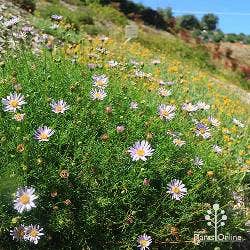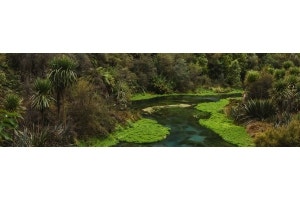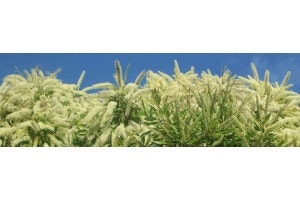
What's a groundcover? Any plant that grows low, in practice. Climbers like ivy and pandorea can be grown as groundcovers, spreading out rather than up.
Some groundcovers grow flat to the ground, some are almost knee-high; some stay neat and rounded, some spread sideways to form a web or a fan. They are often low maintenance workhorses that can give you an impressive finished result with little effort.


Groundcovers are fantastic plants for Australian gardens

- they keep valuable topsoil in place
- cool the roots of taller plants
- reduce water evaporation and runoff
- smother weeds
- bind banks and slopes together
- cover large areas fast
- create striking displays
- shelter small wildlife
How many plants do you need for your groundcover planting?

- Take a look at the width of a mature plant (you'll find this on every product page in the description).
- If you are patient, plant your plants this far apart from each other
- That's how far apart you need to space the plants.
- Plant in an offset pattern like the five-spots on a dice - fun fact, this is called a 'quincunx'
- For faster coverage, plant them half that distance apart, and they will knit together quicker.
- You might need to remove a few later down the line if the plants become too congested.
TIP 1 : ORDER SPARES It's always a good idea to order some extras in case one or two get nibbled by wildlife, or are planted in a poor patch of soil. That way you know you've got exactly the same plant as a replacement.
TIP 2 : PREP WELL Dig the soil over to loosen it; and enrich with compost (if you are planting non-native plants), so your plants get the best start in life.
TIP 3 : ALLOW FOR GROWTH Spreading groundcovers don't grow in perfect circles, so you might need to add in extras after the first planting has established, to close any gaps.
What sort of groundcover do you want?
We've got all kinds of groundcover and carpeting plants for all sorts of places in your garden :- grassy groundcover plants for a natural textured look
- flowering groundcover plants for seasonal colour
- foliage groundcover plants for colour all year round

































